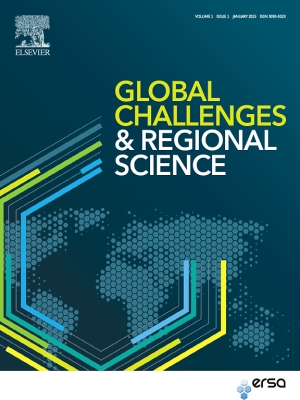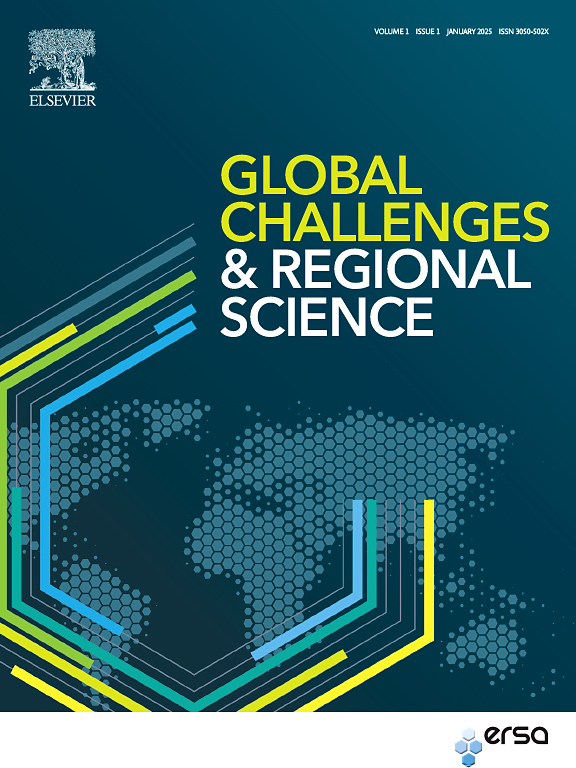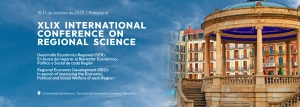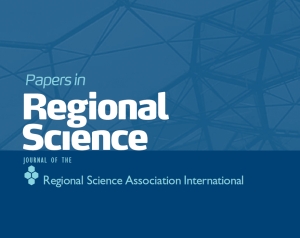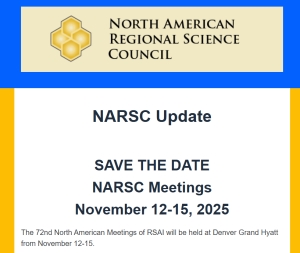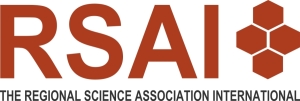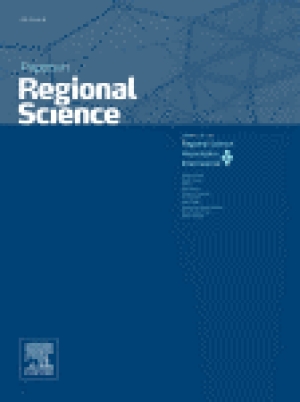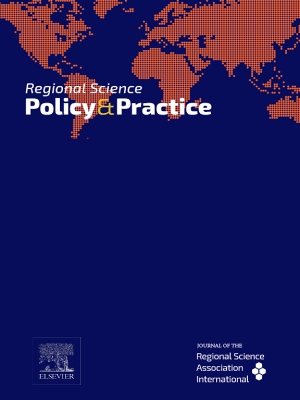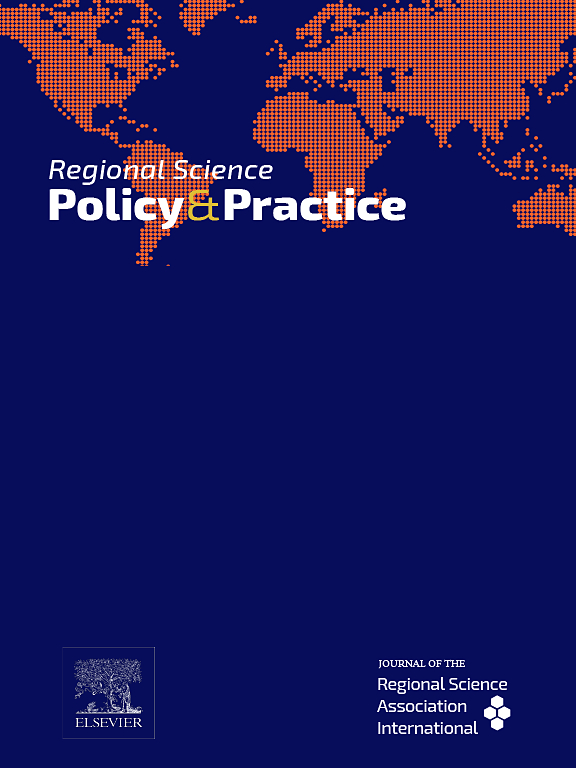RSPP Special Issue Award
Elisabete Martins
First Issue of Global Challenges & Regional Science published!
|
ERSA Prize in Regional Science 2025 – Awarded to Prof. Michael Storper
ERSA and the Jury of the ERSA Prize Committee are pleased to announce that the ERSA Prize in Regional Science 2025 has been awarded to Professor Michael Storper.
Prof. Storper is Centennial Professor of Economic Geography at the London School of Economics and Political Science. He is also an affiliated scholar at the Centre de Sociologie des Organisations at Sciences-Po in Paris, as well as at the Department of Urban Planning in the School of Public Affairs at UCLA. He has also been recipient of various awards and scientific recognitions in Europe and in the US. His research expertise covers several fields including Cities and regions; Economic development; Economic geography; Globalization; Technological change. He published several seminal contributions in major peer-reviewed journals as well as authored various books. His scientific contributions have spread innovative ideas and deep insights on the effective strategies to develop metropolitan regions around the globe. Professor Storper is an active member of the regional science community, as organizer/co-organizer or member in the international advisory board of many high-quality scientific events, member of editorial board of regional science journals, etc. In 2022 he delivered a keynote speech at the opening ceremony of the 61st ERSA Congress in Pecs, Hungary.
The ERSA Prize in Regional Science 2025 will be delivered on 29 August during the Closing Session of 64th ERSA Congress (August 26-29 2025).
Call for Papers | AECR's Annual Congress, 15-17 October 2025, Pamplona, Spain
Dear colleagues,
Before presenting the congress, we would like to highlight some important details:
- The congress will take place in October.
- To simplify procedures, the previous round of communication summaries has been eliminated, so the extended communications or summaries will be the documents to be evaluated by the Scientific Committee.
- The submission date is brought forward to June 13. In this way, a response can be given by June 30, and travel and registration for the congress can be organized before July 15 (prior to the summer holidays).
- The virtual option will be maintained to encourage international participation, although we encourage presence as an ideal formula.
- In relation to the Juan Ramón Cuadrado Young Researcher Award, the participation of any researcher under 33 years of age or whose doctoral thesis defense has been carried out at most two years prior to the date of the congress’s celebration is permitted.
The Spanish and Basque Country and Navarre Associations of Regional Science cordially invite you to participate in the XLIX International Conference on Regional Science, which will be held from the 15th to the 17th of October 2025 at the Pamplona Campus of the University of Navarra at the School of Business and Economics.
As with previous editions, the International Conference on Regional Science is a multidisciplinary forum that offers an overview of regional science and territorial analysis as a starting point. The program will include keynote speeches, panel discussions, and paper presentations. It is the main annual event in Spain for the study, debate, and presentation of academic papers on territorial and regional concepts.
For the XLIX edition, we have chosen the slogan: “Regional Economic Development (RED): In search of improving the Economic, Political and Social Welfare of each Region,” which reflects the importance of addressing, in a comprehensive and participatory manner, the political, social, and economic problems that affect the regions in a context of enhancing economic growth and prosperity of different areas within a country.
RED involves not only attracting labor and capital, improving income, job opportunities, and demographic trends, but also fostering innovation and creativity to help those regions that lag to have sustainable economic growth. In the last decades, we have seen that disadvantages like pollution and insecurity hinder regional economic growth. Therefore, our approach to helping those regions should be integrated, taking all the factors into account.
From a regional perspective, these issues can be tackled through analysis, planning, management, and cooperation. Analysis entails gathering data and information and studying specific processes related to RED. Planning involves designing strategies and policies that promote the efficient and responsible use of regional resources, considering all aspects of a region’s development. Management involves optimizing resources and creating an environment that supports sustainable economic growth. Cooperation involves promoting participation and dialogue among different actors and interests in different territories, as well as seeking agreements and alliances that enhance economic development and provide economic security at intervals throughout different regions.
We aim for the XLIX edition to serve as a forum for discussing the role of regions, cities, and rural areas in addressing the multidimensional challenges of regional economic development. This discussion will take a multidisciplinary approach, covering the economic, social, political, technological, and cultural dimensions of the issue.
We encourage your participation in the XLIX Meeting of Regional Studies. This is a unique opportunity to network with fellow experts and potential collaborators. We hope you enjoy Pamplona, the “city of the thousand titles,” declared a National Historic Artistic Monument. Its defensive walls and Citadel constitute one of Europe´s most interesting and best-preserved Renaissance military complexes.
As in previous editions, the presentation of results of ongoing research work for which a complete article does not exist yet will be accepted. In order for the Scientific Committee to consider the acceptance of said works, the submission of an extended summary with a minimum length of 1,500 words will be required. Here you can find the templates and more information about the congress.
Communications that, in addition to being unpublished, have been made by researchers of no more than 33 years of age or whose doctoral thesis defense has been carried out, at most, two years prior to the date of the congress and are presented as a part of the parallel sessions, they will be eligible for the Juan Ramón Cuadrado Young Researchers Award. The jury in charge of awarding the prize will be the Scientific Committee. The signing authors of the award-winning communication will receive a document accrediting the award and a gift.
Doctoral students who are in the early stages of their doctoral theses and research-oriented master’s students will enjoy a reduced registration fee to access the parallel sessions of the conference and participate in the special sessions for young researchers. In these sessions, you will be able to make a brief presentation of your research ideas.
The Organizing Committee and the Scientific Committee also invite you to propose a Special Session at the Congress. Proposals can be made from today until May 15 and will be disseminated as they are received and approved by the Scientific Committee and the Organizing Committee. The title of the session and the name of the coordinator or coordinators, along with a summary of its content, must be sent to the Congress Secretariat: This email address is being protected from spambots. You need JavaScript enabled to view it.. It is recommended to secure at least 4 contributions for each special session. In the case of receiving a high number of works, they will be distributed into several time slots, according to the criteria of the coordinators.
Sincerely. We will be waiting for you in Pamplona,
The Organizing Committee
Winner 2025 - Martin Beckmann Annual Award for the best paper published in Papers in Regional Science in 2024

The Martin Beckmann RSAI Annual Award for the Best Paper in Papers in Regional Science
Winner 2025
RSAI has the great pleasure to announce that the commission for the 2025 Martin Beckmann award composed by the RSAI Fellows Eduardo Haddad (LARSA), Janet Kohlhase (NARSC), Erik Verhoef, (ERSA) and Rosella Nicolini (EiC of PIRS), has completed the selection of the papers published in Papers in Regional Science (PIRS) in 2024..
The commission selected the following article as the recipient of the 2025 Martin Beckmann award
Giorgio Fazio, Sara Maioli, Nirat Rujimora, "Building back greener, levelling-up or both? An assessment of the economic and environmental efficiency transition of UK regions",
Published in Papers in Regional Science, Volume 103, Issue 6, 2024, 100053, https://www.sciencedirect.com/science/article/pii/S1056819024000733
Motivation:
This contribution tackles the relevant and open question of the implementation of effective policies to achieve two goals at regional level: “building back greener” and “levelling-up”. The approach implemented by the authors is empirical. The setting of reference is the UK regions for the period 2005-2020 and their study relies on an original data sample. The research strategy exploits the Data Envelopment Analysis (DEA) to calculate the regional and environmental efficiency, whereas the computation of the Markov transition probabilities is meant to quantify the regional transition probabilities to improve at least one the two previous efficiencies. Results emphasize that there is a trade-off between the two types of efficiencies for more than half of the regions and that the costs of transition are unequally distributed. Authors also identify that regions are more likely to become efficient in both directions if they are already environmentally efficient. Furthermore, the empirical analysis does not provide evidence of spatial spillovers for the environmental transition process, but they matter for regional economic efficiency. The final discussion of this contribution is timely and relevant to inspire effective regional policies. Evidence at hand suggests that there is a clear need of strong coordination between place-based policy and national governments to fully achieve the two selected goals.
Job Opportunity at the JRC: Economic Analyst - Digital Innovation
Job Opportunity at the JRC: Economic Analyst - Digital Innovation
They are looking for a motivated Economic Analyst to join the JRC Digital Economy Unit in Ispra, Italy. As part of the DIGINNOVA project, you'll analyze digital innovation trends, AI adoption, and their economic impacts — translating insights into EU policy recommendations.
? Deadline: April 14, 2025
? Location: Ispra, Italy
NARSC at ASSA/AEA, Call for Papers. Mark Your Calendar for NARSC 2025 in Denver!
|
|
|
|
RSAI FELLOWS AWARD and the PETER NIJKAMP RESEARCH ENCOURAGEMENT AWARD
Dear RSAI members,
I hope this email finds you well.
Just a brief message to remind you that every RSAI member has the possibility to nominate candidates for the “RSAI Fellow Award” and the “Peter Nijkamp Research Encouragement Award”.
RSAI Fellows are "distinguished scholars with a proven and recognized research record in the field of Regional Science during a considerable part of their scientific career. Such honoured members of the RSAI are appointed after a careful nomination and selection procedure, based on a broad consultation of the RSAI membership".
The aim of the “Peter Nijkamp Research Encouragement Award” is to recognize “the outstanding potential of an mid-career researcher (in the Field of Regional Science) from a nation in the developing world” in a full time employment position in a university or research institution based in a developing nation in which there is a member section of RSAI, and who has become a Doctor no more than ten (10) years before next December 31st.
If while reading the previous paragraph, some RSAI member has come to your mind, please consider nominating her/him for this year’s Awards. (Remark: no self-nomination or nomination by RSAI Fellows are allowed).
Candidatures will be screened by dedicated committees. For the “RSAI Fellow Award” the election will be based on the votes of the RSAI Fellows. In the “Peter Nijkamp Research Encouragement Award” a four-person Jury will take the decision.
For more details on these two awards, please visit:
https://www.regionalscience.org/index.php/awards/rsai-fellows.html (RSAI Fellow Award). Deadline Apr. 15th
https://www.regionalscience.org/index.php/awards/peter-nijkamp-research-award.html (Peter Nijkamp Research Encouragement Award). Deadline May 31st.
Thank you all in advance for your attention and looking forward to candidacies,
Kind regards,
Ana Viñuela
RSAI Executive Director
PhD studentship on regional impacts of trade policy, fdi and the green economy
About the Project
Department: College of Business and Social Sciences
Contract Type: Fixed Term
Basis: Full Time
Closing Date: Thursday 24th April 2025 23.59 (UK time)
Supervisor: Dr Agelos Delis & Dr Tasos Kitsos
Applications are invited for a three-year PhD studentship, supported by the College of Business and Social Sciences to be undertaken within the Centre for Business Prosperity, Aston Business School at Aston University.
The position is available to start in October 2025.
More information - https://www.findaphd.com/phds/project/trade-policy-foreign-direct-investment-and-the-green-economy-implications-for-the-uk-and-its-regions/?p183496
New Issue: Papers in Regional Science | Volume 104, Issue 2, April 2025
|
|
|
|
|
|
|
|
|
|
|
|
|
|
New Issue: Regional Science Policy & Practice | Volume 17, Issue 4, April 2025
|
|
|
|
|
|
|
|
About Us
The Regional Science Association International (RSAI), founded in 1954, is an international community of scholars interested in the regional impacts of national or global processes of economic and social change.

